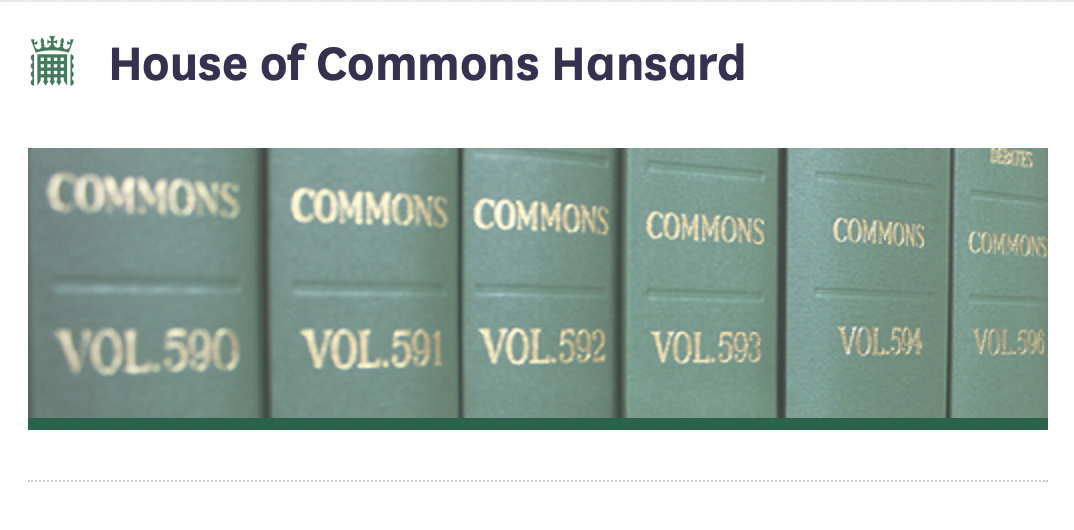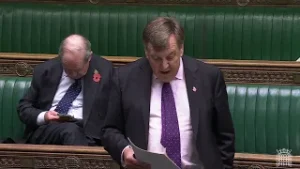John Whittingdale Conservative, Maldon
I do think that more needs to be done. The counter to the statistic that the hon. Gentleman has just quoted is the number of pages being taken down. The BPI alone is notifying half a million infringing pages and they are promptly removed, but this is a Hydra—as soon as one comes down, another three go up.
The need to achieve greater agreement between the search companies and the rights owners remains as great as ever. Therefore, the idea that the Government should spur them on to get that agreement by saying that, unless it can be obtained, the Government may have to impose the code of practice, is now something that we need at least to consider. I do not necessarily say that I support the new clause of the hon. Member for Cardiff West, but I have considerable sympathy with it because we still have a long way to go to solve the problem, and at the moment progress is almost impossible to detect.
The second new clause tabled by the hon. Member for Cardiff West that I wanted to refer to, which I have even greater sympathy with, is new clause 30. My right hon. Friend the Minister is a champion of the creative industries because he knows, as I do, that our economy benefits enormously from the strength of the UK creative industries. Their success rests upon IP rights. They have to be confident that their investment, their creation and their skills will receive proper reward from consumers who pay for that content. It is not just the film, television and music industries and the sports companies; it is also our broadcasters, who are spending billions of pounds in some cases to acquire rights. They are entitled to expect that the people who access them do so legitimately and pay for that, and do not do so through illegal streams from offshore.
The latest development in the technology, which the hon. Gentleman rightly identified, is IPTV set-top boxes. These are being marketed in vast numbers. They arrive fully loaded with the codes and the access to go straight to the sites that are providing illegal content. An empty set-top box may not in itself be illegal but, clearly, when it is being marketed on the basis that it is all too simple to fill it with the apps and the codes that will access illegal sites, that is a problem that we need to address.
I give the Minister just one example that was quoted to me today. It is an advertisement for the Amazon “Black Friday” sale, so we are talking about no more than a couple of days ago. It read:
“Come with the newest KODI 16.1. Cut your monthly TV subscription and enjoy FREE Movies, shows and live entertainment from all over the world including sports. No restrictions! Forget the limitations and necessary payments by using Apple TV or ROKU! Android on your TV. Install your favorite apps from the Google Play Store.”
This is being marketed on Amazon and those boxes are being shipped in their millions from China in the main, but from elsewhere, too. They are clearly being used to make it easy for consumers to access content for free and illegally. That is doing real damage to our creative industries. The hon. Gentleman’s new clause is not perhaps the right way to proceed. I am sure that it is deficient and that the Government will find failings in it, but the problem it identifies is a real one, so I hope that the Government will look to see what additional measures we can take to ensure that our IP law remains up to date with the technological developments that are again threatening our creative industries.
Finally, I want to talk to new clause 31. When I had the privilege of chairing the Select Committee, we spent a lot of time discussing ticket touting, and at that stage we were unconvinced that it was right either to ban the secondary market, for which there is a legitimate role, or to impose a flat rate top-up limit as to how much extra could be charged on a ticket; those were two possible solutions advanced at that time. We felt to some extent that this was more an issue for the industry and the market to address, and indeed the industry has worked hard to introduce technological requirements designed to stop people selling on tickets.
However, I was interested to hear from the hon. Member for Cardiff West about my right hon. Friend the Minister’s Paul Simon experience. I have to say that I do not necessarily share his enthusiasm for Paul Simon, but when I sought to buy tickets for the V festival I was unable to get on the website for the first 10 minutes and then in the 12th minute was informed it was sold out, and in the 13th minute I discovered those same tickets on Seatwave for about four times their face value, so I have some sympathy.
John Penrose Conservative, Weston-Super-Mare
My right hon. Friend mentioned earlier that there are possible industry-based solutions. I am reminded of the way the Government handled the 2012 Olympics, when it was not possible to get tickets without providing photo ID, and it was an end-user sale in the first place, which effectively meant the bots could not buy large numbers of tickets in the way he has just described for the V Festival, or indeed for a Paul Simon concert. Does he believe that the solution therefore lies with the sporting and entertainment industries, and that they could have done this several years ago, and it is peculiar that they have elected to come to this place asking for a legislation-based solution when there is a software answer out there right now?
John Whittingdale Conservative, Maldon
I have a lot of sympathy with my hon. Friend on that. I was fortunate enough to attend one of the greatest concerts of all time—the Led Zeppelin reunion at the O2—where exactly that system was introduced. People had to produce the credit card used to purchase the ticket in order to get the ticket; they did not get the ticket until they arrived at the venue. There are ways around this problem, but that imposes quite a considerable additional burden on the ticket purchaser, either to supply a photograph or to take a credit card. Of course, it does not then assist when there is a legitimate reason why somebody might want to transfer their ticket to another person because for some reason they are not able to attend. We do not want to stop the secondary market working in a way that is wholly legitimate, which is the case in such circumstances.
Damian Collins Chair, Culture, Media and Sport Committee
Does my right hon. Friend agree that since the Select Committee looked at this matter under his chairmanship one of the big changes is that it is less about the regulation of the secondary market than the fact that the technology has effectively destroyed the primary market, because most people have no chance of accessing the primary market to buy the tickets they want?
John Whittingdale John Whittingdale Conservative, Maldon
I agree, and that was my experience, and indeed my right hon. Friend the Minister’s, despite our different musical tastes, when we sought to purchase tickets. For that reason, I am interested in the suggestion in new clause 31 to target specifically the bot problem, or the electronic purchasing in a short period of almost the entire ticket allocation—hundreds of tickets in a matter of seconds bought up by these bots—which prevents ordinary fans from accessing the tickets. I cannot believe that that is what the promoters want, so looking specifically at this problem as the new clause does is an interesting approach, and certainly one worth exploring further.

